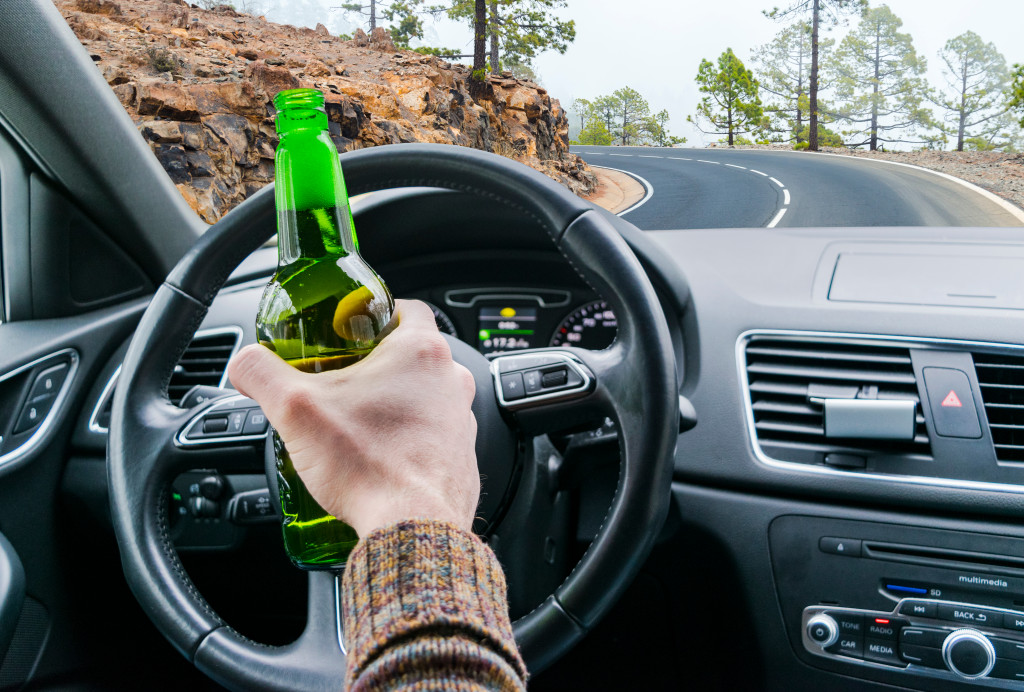Most people know that driving under the influence of alcohol or drugs is illegal. In 2020 alone, 10,511 people were killed in DUI and DWI-related crashes in the United States – that’s one person every 50 minutes.
However, many people don’t realize that there are two different charges you can face for this crime: DUI and DWI. While both charges are serious, they do have some essential differences that you should be aware of.
DUI vs. DWI: The Charges Defined
DUI, or driving under the influence, is a severe crime that can have lifelong consequences. If you are convicted of DUI, you may face jail time, fines, and the loss of your driver’s license. You may also be required to attend alcohol education classes and install an ignition interlock device in your car. And, if you cause an accident while driving under the influence, you will be held responsible for any damage or injuries.
A DUI, or driving under the influence, is a charge given to drivers who operate a vehicle with a blood alcohol content (BAC) of .08% or higher. A DWI, or driving while intoxicated, is a charge given to drivers who operate a vehicle while impaired by drugs or alcohol.
The main difference between these two charges is the BAC required for a DUI versus a DWI. For a DWI, you can be charged even if your BAC is below .08%. If officers pull you over and suspect you are intoxicated, they can administer a sobriety test. If you fail the test, you will be charged with a DWI.
The Penalties for DUI and DWI Charges
DUI and DWI are severe offenses with strict penalties if convicted. The penalties for a DUI depend on whether it’s your first, second, or third offense. For a first-offense DUI, you may face up to one year in jail, a fine of $1,000, and loss of your driver’s license for six months. For a second offense DUI, you may face up to two years in jail, a fine of $2,000, and loss of your driver’s license for one year. And for a third offense DUI, you may face up to three years in jail, a fine of $3,000, and loss of your driver’s license for one year.
DWI is short for driving while intoxicated. It’s also called DUI, or driving under the influence. DWI is a crime in all 50 states and Washington, D.C. If you’re caught driving drunk, you can be arrested, fined, and even jailed. You may also lose your driver’s license. For these reasons, you need to have a good team of DWI lawyers by your side to ensure the best possible outcome for your case.

DWI is dangerous. Every day, nearly 30 people in the United States die in drunk-driving crashes — equating to one person every 48 minutes. In 2017, more than 10,000 people were killed in drunk-driving incidents.
The penalties for a DWI are more severe than those for a DUI. For instance, if it’s your first offense DWI and your BAC was .08% or higher but less than .15%, you may face up to 180 days in jail and a fine of $2,000. If your first offense DWI and your BAC was .15% or higher but less than .20%, you might face up to two years in jail and fines reaching $4,000. For each subsequent arrest on either charge, the penalties become more severe.
Preventing DUI and DWI incidents
Due to the severity of the penalties, you must do everything you can to prevent yourself from being charged with either DUI or DWI. The best way to avoid being charged is to simply not drink and drive. If you are drinking, make sure to have a designated driver or take public transportation. If you are taking medication, check the label to see if it advises against operating heavy machinery. If it does, that includes driving a car.
Law enforcers are also implementing measures to catch drivers under the influence. Police officers are trained to spot intoxication signs and often set up sobriety checkpoints. If you’re stopped at a checkpoint, the officer will ask you questions and look for signs that you’ve been drinking. They may also administer a field sobriety test. If the officer has reasonable suspicion that you’re intoxicated, they will likely ask you to take a breathalyzer test.
Refusing to take a breathalyzer test can have consequences. In some states, refusing to take a test is considered an automatic DWI. This means that even if you weren’t drunk, you can still be charged with a DWI.
The bottom line
Knowing the difference between a DUI and DWI can help you avoid these charges altogether by understanding the consequences associated with each charge. If you do find yourself facing either charge, it’s important to seek legal assistance as soon as possible so that you can give yourself the best chance at fighting the charges and minimizing the penalties.
